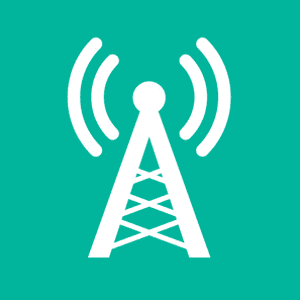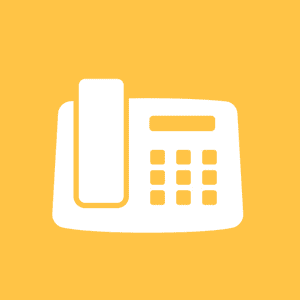Business Phone Service in Minnesota
If you own a business in Minnesota, then you need business-grade phone service. Today, the phone is still the primary form of communication, and it's used by consumers to get in touch with your business. Since the phone is still the primary form of communication, it's very important to choose the right business phone service for your needs. An ideal service should be reliable, affordable and diverse. It should deliver all of the features needed to efficiently run a business. Before choosing a service, it's important to consider the different service providers and what they have to offer. The two main types of business phone services are analog and VoIP. To choose the right service, you must understand how these options work, and once you understand the basics, it will become much easier to compare business phone service providers in Minnesota.
| Provider | Plan Details | Monthly Rate* | |
|---|---|---|---|
 |
RATED #1 BY INDUSTRY EXPERTS
|
$19.99
|
Details

142 Reviews |
 |
Business phone service - no internet required
* 8.3% discount if paid for the year upfront |
$17.41*
|
Details

7 Reviews |
 |
Alliance Phone Service
* 12% discount for subscribing and paying for a year upfront |
$19.97*
|
Details

13 Reviews |
_4.png&contenttype=png) |
The phone system built to do business anywhere
* $5 per additional user |
$19.00*
|
Details

1 Reviews |
_2.png&contenttype=png) |
Get 99.99% network reliability with Fios.
* Per month. Plus taxes, fees and equipment charges. |
$69.00*
|
Details

11 Reviews |

What is Minnesota Business VoIP Phone Service?
An alternative to traditional landline service, VoIP has become increasingly popular with new businesses as well as older companies that switch after realizing how VoIP can increase productivity and reduce operating costs. Although the technology is over ten years old now, it initially suffered from poor call quality due to limits in broadband technology. That issue is no longer a concern due to the widespread deployment of superior broadband networks, and adaptation of VoIP is expanding rapidly. VoIP now offers the same call quality as analog phone service while providing more features at a better price. VoIP works by sending voice calls over the internet rather than through traditional analog telephone lines, so it is important that you have a fast and reliable business internet connection available. To see if your internet connection in Minnesota will support VoIP service, use the MyRatePlan internet speed test.
PSTN refers to traditional landline service, where voice calls sent through analog lines are routed through switches to other telephones. VoIP works differently, by turning voice calls into packets of data and transferring them over high-speed broadband lines. Transmitting voice calls over the internet costs less since analog lines are archaic and require constant maintenance, while broadband lines are already in use to provide internet service and the network is continually expanding and improving. Since PSTN service infrastructure is more expensive to maintain than broadband, analog telephone providers must charge for services and features that are often free with a VoIP plan. VoIP customers typically spend much less on features such as long distance than PSTN users and are not charged by the minute.
VoIP service providers offer plans tailored to businesses of all sizes and provide essential features like voicemail and call waiting, as well as advanced productivity features including automated line attendants and remote access. Whether your business needs a few lines or you need several thousand, VoIP providers in Minnesota can meet your requirements and help to increase the efficiency and profitability of your business.

How to Choose the Best Business VoIP Service Provider in Minnesota
Most business VoIP providers in Minnesota offer plans designed to accommodate businesses of all sizes. You could have a small company with only five lines, or a large corporation that uses thousands of extensions for multiple departments. There is a VoIP service that meets your business needs.
Still, having more than one provider from which to choose requires knowing how to choose what is best. The first thing you want to do is determine the type of telephone service your business needs. Answering questions such as the number of phone lines required and features used during the normal course of business are relevant to finding the best phone service provider.
If you plan to expand, you want a system that is scalable, whether you are adding a new location or increasing needs at your current one. Of course, you want to determine how much you can afford and whether you are receiving an introductory rate that expires in 6-12 months.
Next, you can use MyRatePlan to look at different offers from business VoIP providers in Minnesota. Compare their services, prices and reputation for serving businesses in the area. Getting a good deal is great, but having a consistently working phone system is crucial to your business' success. A low rate is not good enough if the company does not have a positive track record for excellent customer service and being reliable.

What is Traditional Business Phone Service in Minnesota?
Traditional phone service companies transmit their signals through a PSTN. The PSTN uses circuit-switched telephony. It is based on copper wires carrying analog voice data. Telephone services that are facilitated by PSTN are often known as Plain Old Telephone Service (POTS) because it has been operational for more than 100 years. It was the first mode of a network to be used by telephone service providers. The PSTN also comprises of satellites, mobile networks, and cables.
The PSTN infrastructure is very large. Therefore, it is expensive to use PSTN telephone service than VoIP in Minnesota. Moreover, the PSTN network is old and often requires maintenance. The major setback of PSTN telephone services is that they have difficulties when sending data over long distances because they are analog.
When making long distance calls over the PSTN, the data has to stop at different destinations during its transmission. The data flow through the equipment owned by various companies as the call is in progress. Therefore, it makes the call cost per minute higher and expensive. The traditional phone service companies use a lot of infrastructures to carry, switch, and route the calls that are now digital. However, the connection between the local central office and the customer is still analog.

Analog Private Branch Exchange Systems in Minnesota
Many businesses have PBX systems that handle calls internally. This makes it possible to send calls to different phones depending on the extension. Analog PBX systems also facilitate voice mail, forwarding, conference calls and other sophisticated functions. They are popular among businesses that have multiple staff members with separate offices. A company can put the PBX equipment in its own building or pay a separate facility to host it.
The main downside of PSTN-based PBX systems in Minnesota is that they cost considerable amounts of money. Most companies spend $1,000 or more when they buy the equipment. It can also be costly to set up this system and conduct the necessary maintenance. Some firms have employees with the appropriate expertise to perform these tasks. Others need to pay contractors who charge at least $100 per hour.
It often proves costly to upgrade analog PBX hardware. This may become necessary if a company hires more staff members or desires the latest technology. Most systems cap the number of extensions. Consequently, businesses must pay for expensive new equipment when they want to connect additional phones. Upgrades are sometimes complex, so installers need to have extensive technical expertise.
Private branch exchange systems occasionally malfunction or fail as they age. This can result in significant expenses when technicians need to replace or fix the equipment. Technical difficulties may also disrupt communications from time to time. Many of the above-mentioned problems can be avoided when companies opt to use business VoIP services instead of analog PBX systems.
Find Business Phone Service Providers in
- Minneapolis, MN
- Saint Paul, MN
- Rochester, MN
- Duluth, MN
- Wells, MN
- Roscoe, MN
- Wyoming, MN
- Roosevelt, MN
- Dodge Center, MN
- Silver Lake, MN
- Littlefork, MN
- Ironton, MN
- Watkins, MN
- Norwood Young America, MN
- Cotton, MN
- Danube, MN
- Osakis, MN
- Millville, MN
- Albertville, MN
- Darwin, MN
- Badger, MN
- Garfield, MN
- Springfield, MN
- Clinton, MN
- Argyle, MN
- Dunnell, MN
- Harmony, MN
- Detroit Lakes, MN
- Worthington, MN
- Callaway, MN
- Dundas, MN
- Searles, MN
- Kennedy, MN
- Roseau, MN
- Deer River, MN
- Two Harbors, MN
- Ottertail, MN
- Monticello, MN
- Grey Eagle, MN
- Montrose, MN
- Echo, MN
- Kerkhoven, MN
- Claremont, MN
- Schroeder, MN
- Winton, MN
- La Crescent, MN
- Redwood Falls, MN
- Blue Earth, MN
- Finland, MN
- Eagle Bend, MN
- Lakefield, MN
- Blomkest, MN
- Ulen, MN
- Hitterdal, MN
- Circle Pines, MN
- Breckenridge, MN
- Beaver Bay, MN
- Mizpah, MN
- Canby, MN
- Leonard, MN
- Delavan, MN
- Almelund, MN
- Lutsen, MN
- Darfur, MN
- Brookston, MN
- Nielsville, MN
- Puposky, MN
- Stockton, MN
- Rice, MN
- Mantorville, MN
- Britt, MN
- Viking, MN
- Ghent, MN
- Hayward, MN
- Salol, MN
- Browerville, MN
- Angora, MN
- Lowry, MN
- Winona, MN
- Hoffman, MN
- Courtland, MN
- Sartell, MN
- Mayer, MN
- Big Falls, MN
- Pine River, MN
- Le Sueur, MN
- Ostrander, MN
- Saint James, MN
- Lengby, MN
- Savage, MN
- Perley, MN
- Tintah, MN
- Garden City, MN
- Lake Crystal, MN
- Alpha, MN
- Correll, MN
- Winger, MN
- Sunburg, MN
- Greenwald, MN
- Strathcona, MN


 Menu
Menu